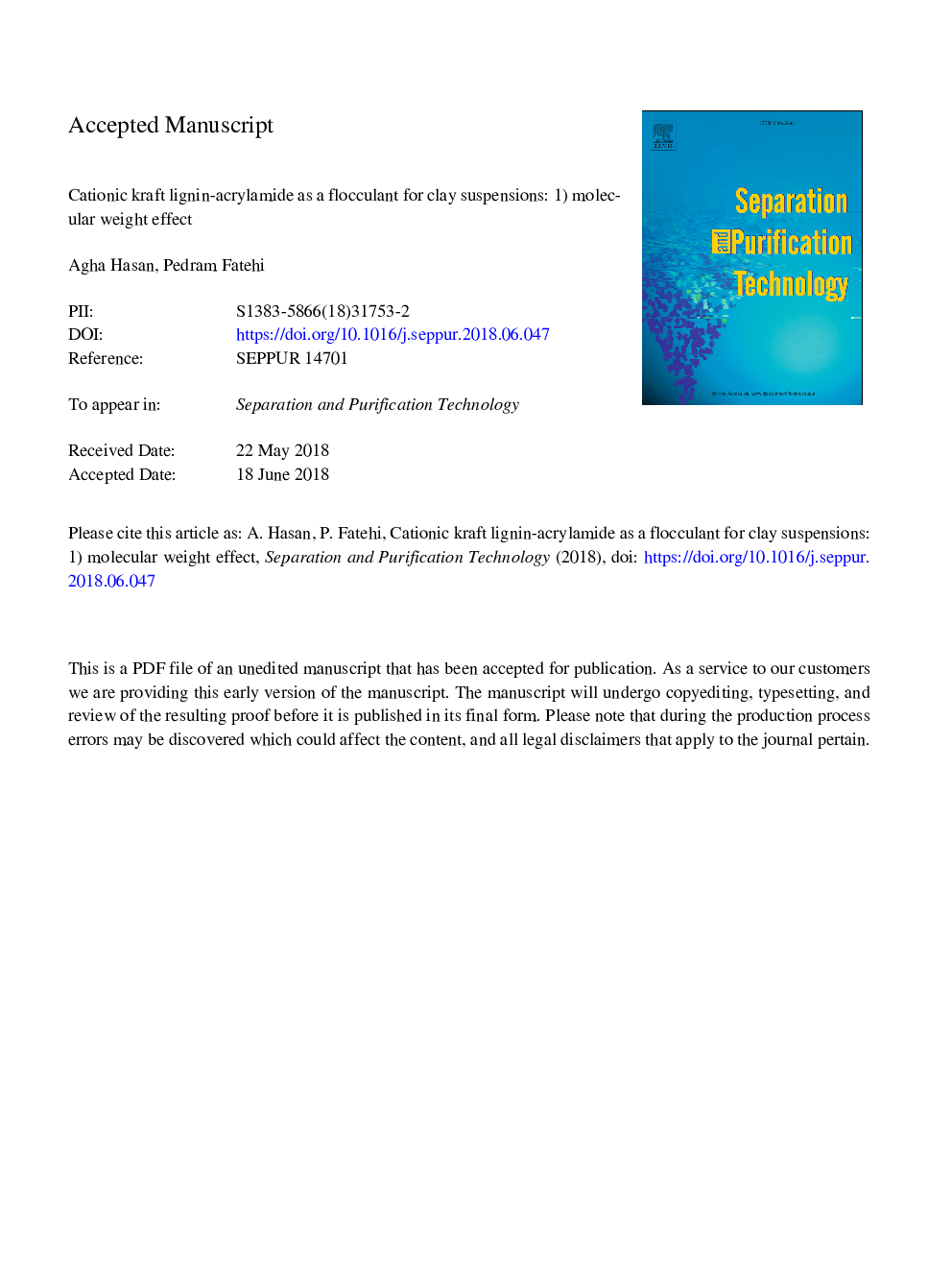| کد مقاله | کد نشریه | سال انتشار | مقاله انگلیسی | نسخه تمام متن |
|---|---|---|---|---|
| 7043534 | 1456913 | 2018 | 37 صفحه PDF | دانلود رایگان |
عنوان انگلیسی مقاله ISI
Cationic kraft lignin-acrylamide as a flocculant for clay suspensions: 1. Molecular weight effect
ترجمه فارسی عنوان
کاتیون کرافت لیگنین آکریل آمید به عنوان یک فلکشن برای رسوبات رس: 1. اثر وزن مولکولی
دانلود مقاله + سفارش ترجمه
دانلود مقاله ISI انگلیسی
رایگان برای ایرانیان
کلمات کلیدی
موضوعات مرتبط
مهندسی و علوم پایه
مهندسی شیمی
تصفیه و جداسازی
چکیده انگلیسی
Currently, kraft lignin is burned in the recovery cycle of the kraft pulping process; despite its high potential to be extracted and converted into value-added products. In this work, kraft lignin (KL) was copolymerized with acrylamide (AM) and 2-[(methacryloyloxy) ethyl] trimethylammonium chloride (DMC) to produce cationic copolymers. Copolymers with two different molecular weights of 168,200â¯g/mol (KAD-1) and 103,000â¯g/mol (KAD-2), but with a similar charge density of 1.15â¯meq/g, were selected and the flocculation efficiency of the copolymers in two different clay suspensions was investigated. Suspension pH affected the adsorption of the copolymers on clay particles and the removal of the particles from the suspension. At a 8â¯mg/g dosage, KAD-1 adsorbed more than KAD-2 as it was larger and thus developed more bridging with clay particles. The size of particles raised from 4.7 for kaolin to 16.3â¯Î¼m for kaolin/KAD-1 flocs and 15.1â¯Î¼m for kaolin/KAD-2 flocs, and it increased from 6.1 for bentonite to 18.97â¯Î¼m for bentonite/KAD-1 flocs and 15.35â¯Î¼m for bentonite/KAD-2 flocs in the presence of 8â¯mg/g of copolymers, respectively. The adsorption, zeta potential and flocculation analyses confirmed that KAD-1 was a more effective flocculant than KAD-2. The evidence for the agglomeration of clay particles via bridging and electrostatic patch mechanisms was also discussed in this work.
ناشر
Database: Elsevier - ScienceDirect (ساینس دایرکت)
Journal: Separation and Purification Technology - Volume 207, 22 December 2018, Pages 213-221
Journal: Separation and Purification Technology - Volume 207, 22 December 2018, Pages 213-221
نویسندگان
Agha Hasan, Pedram Fatehi,
